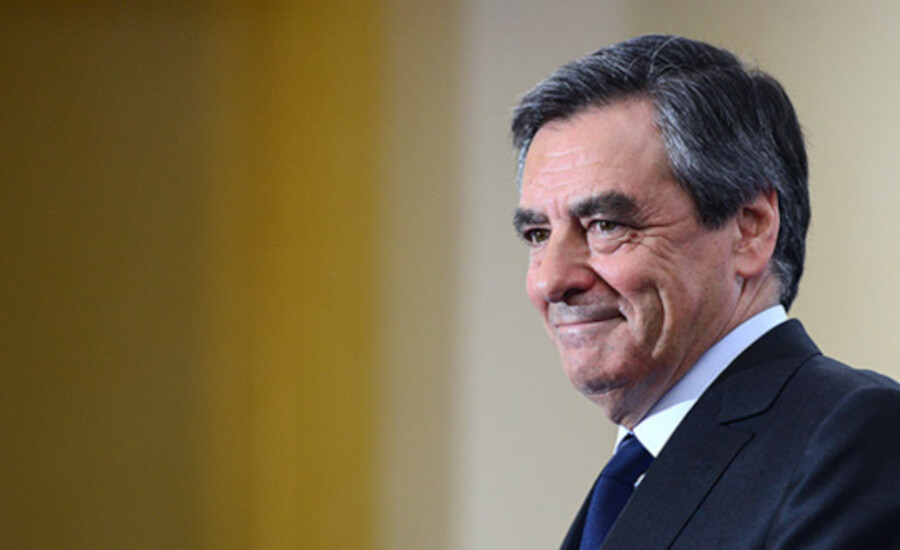
Frederic Stevens/Getty Images
France Wants to Unleash the German Beast in 2017
The Federal Republic of Germany is a powerhouse marred by its past. It was restrained and bound with chains by the Allied forces after World War II. Ever since then Germany has feared that if its aggressive nature breaks free again, it may be rebuked and suppressed. Beaten down and intimidated, Germany was isolated behind iron bars, taking the role of a pacifist while the rest of the world moved forward. It relied on the protection of those who restrained it, and it used its past as an excuse to take a backseat in world affairs while others did the dirty work.
Germany’s pacifist days are now over, says center-right French presidential candidate François Fillon, who is the current frontrunner for April’s elections. The Berlin attack and Donald Trump’s election are a “game changer,” according to Fillon, after which Germany can no longer play the role of a pacifist.
Fillon said he wants to “remobilize the European Union around strategic priorities: our collective security, defense, innovation and the retightening of the eurozone,” the Telegraph reported. To further discuss his vision for Europe, he has a scheduled meeting with German Chancellor Angela Merkel on January 23 in Berlin. Though he has a few disagreements with Merkel, he knows that Germany and France have to form the core of a tighter European Union in which Germany has to take on more responsibility.
This might seem like an insignificant move by a man who might be the future president of France, but considering France was once one of Germany’s greatest restrainers, it is a drastic turning point in history.
For centuries, Germany and France were constantly at war, which eventually exploded into World War I. Thereafter, France was one of the strongest supporters of the Treaty of Versailles, which was designed to restrain Germany. But France and the other powers gave in, and the German power erupted again in World War II.
Some in France learned history’s lesson and wanted to ensure that Germany could never rise again. Even after Europe began its unification process, France, next to Britain, was one of the greatest opposers to a tighter and more integrated union, not least due to its fear of German dominion.
One of the strongest barriers the French parliament put in the way of European unification was its prevention of the European Defense Community in 1954. Instead of an EU army, NATO was established, which Germany then joined. Germany’s aspiration to contribute militarily was channeled into a sizeable organization that it was unable to dominate.
But if NATO takes a less prominent role in Europe, and France, of all nations, implores Germany to contribute more toward European defense, and furthermore, if Britain no longer has a say in European affairs, who will keep Germany on its leash?
Britain and America gave France control of the leash on the German beast. But France now sees an opportunity to use Germany to its advantage by helping solve the crises in the Middle East and contribute to a defense union that can stand its ground in the face of Russia. Germany, most notably, dominates European finances, while France is the more militarily strategic player. This year portends a financial and security threat to the European Union. France knows it needs to unleash the German power to be able to face the challenges ahead.
Has France become too accustomed to its restrained warmongering neighbor?
For decades, France observed the German beast as it paced behind its iron bars; with fear and great admiration, France perceived its power and ominous potential. France knows that Brexit, the terrorist attacks, the Russian threat and an obsolete NATO require a power beyond itself. So, it is carefully opening the iron door to the cage in which the beast rests. For the first time in 70 years, sunlight hits the face of the marred and hungry monster. Bound with shackles around its paws and neck, it looks bewildered at France. In its hands, France holds the keys that Britain and the U.S. handed over. As it removes each shackle, it hopes it can use the German beast’s power while keeping it under control.
To find out what kind of a beast is being released, request our free booklet Who or What Is the Prophetic Beast? or watch Trumpet editor in chief Gerald Flurry’s Key of David program on the subject. ▪